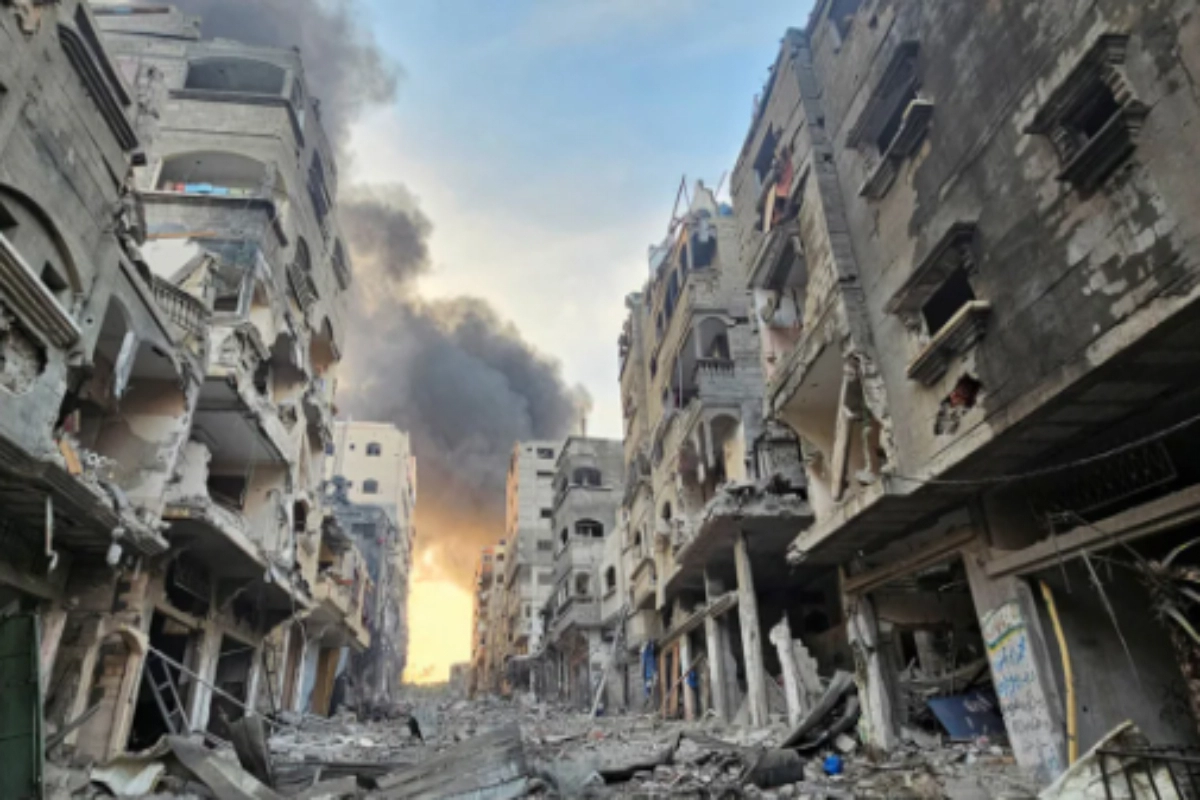Israel-Iran Shadow War: Israel now needs to fortify a second front in its six-month-long conflict against the terrorist outfit Hamas. Iran has declared that it will “slap” Israel and that it is ready for battle. Iran made these comments in response to an Israeli airstrike that killed at least seven Iranians, including two generals, when it struck their consulate in Damascus. Although Israel has been hitting Iranian assets in Syria on several occasions in recent months, this was the first time an assault targeted an Iranian diplomatic facility.
Israel’s Heightened Preparedness
Since then, Israel has increased air defences, called up reserves, and cancelled combat troops’ home leave. It has also been on high alert. In order to thwart GPS-navigated drones or missiles that might be fired towards the nation, its military jumbled navigational signals over Tel Aviv on Thursday.
This shadow war has its origins in the 1979 toppling of Shah Mohammad Reza Pahlavi, the last ruler of Iran. Iran’s officials took an anti-Israel stand after the Islamic revolution, siding with organisations like Hamas in Palestine and Hezbollah in Lebanon.
Ayatollah Khomeini’s Vision
The revolution’s leader, Ayatollah Ruhollah Khomeini, introduced a new worldview that primarily defended Islam. He demanded that the “arrogant” international powers that persecute others—including Palestinians—in order to further their own agendas be challenged.
Israel was referred to by the new Iranian administration as the “Little Satan” in contrast to the US, which is known as the “Great Satan.” Israel, meanwhile, claims to have carried out covert activities to obstruct Iran’s atomic programme because it views Iran’s nuclear aspirations as an existential threat.
Israel-Iran Shadow War Overview
Israel and Iran have been at odds over a number of issues, not just ideologies or proxies; they frequently attack one another. But because none of them has admitted to being the one behind the attacks, the battle has come to be known as a “shadow war” and has extended to multiple other nations in the area.
One of the frontlines in the two Middle Eastern countries’ shadow war is Lebanon, where Hezbollah has emerged as a stand-in for Iran’s regional ambitions. The border region has been plagued by conflict due to Hezbollah’s rocket strikes into Israel and Israeli incursions into Lebanon.
Iran’s Military Expansion in Syria
Iran increased its military presence in Syria in order to back President Bashar al-Assad and enable the supply of weapons to Hezbollah, creating another front in the battle. Tensions have increased as a result of Israel’s repeated airstrikes against Iranian assets in Syria. The two enemies’ animosity has also been exacerbated by maritime incidents, including attacks on commercial vessels that are allegedly carried out by both Iran and Israel.
Biden Offers Support to Israel Amid Rising Tensions
US President Joe Biden called Israeli Prime Minister Benjamin Netanyahu amid the escalating confrontation between Iran and Israel, offering his support. “Our teams have been in regular and continuous contact since then. The United States fully supports the defense of Israel against threats from Iran,” a senior Biden administration official said. However, a few hours after the Biden contact was made public, Iran released a statement cautioning the US against getting involved in the fight.
The possibility of a full-scale conflict is very real, especially in light of Iran’s nuclear programme. Israeli officials maintain their scepticism towards Iran’s assertions of benign intentions, citing evidence to the contrary. Israeli leaders have consistently hinted that they would use air power to attack Iran’s nuclear programme, much as they did with Iraq in 1981 and Syria in 2007, should Iran get close to obtaining weapons of mass destruction.
